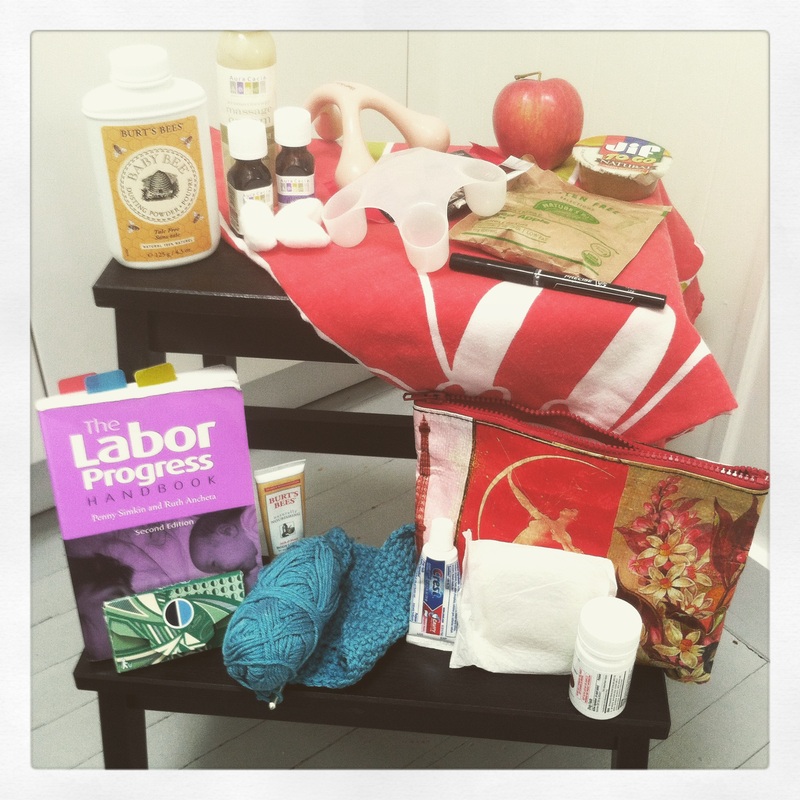|
When I first started my birth doula career, I would post on FB tidbits like, "(Amy) is winding down after a birth with some ben and jerry's" or "(Amy) is home with her family after having witnessed the birth of a new baby". Sometimes it was just something along the lines of "Birth is great!".
And then I listened with curiousity to more experienced birth doulas explain why posting on social media may not be the best idea. At first, I felt defensive. I loved working as a birth doula (still do!) and I wanted to share it with my FB community that I was: 1) witnessing birth AND 2) working as a birth doula. Wasn't it okay to be excited about these parts of my life? Yes, it's okay to be excited about these parts of my life. But is it okay to post about it on social media? I was a believer that it was okay to post about attending births, but I'm not okay with it anymore. Here are some reasons why:
Now, you may sometimes see that there is evidence I'm a birth doula, however it won't come as a status update when I walk in the door from a birth. It may come in pictures a client has shared with me and given me permission to post (or perhaps they've tagged me in pictures). It may come in articles I post. You may know I'm a birth doula because I'm tagged in birth-related posts. I may sometimes post in general that I love my work or I am grateful for what I get to do in my professional life. But I can say, this won't be following supporting a laboring woman. It will after I've settled into my other roles and have the time to reflect on what I love. Some days you will feel like everything is going right! You're in a good place, you're eating great meals, you've had sweet times with your little one. Your home is tidied, cloth diapers are all washed up, your hair looks good and you're wearing an outfit that makes you feel great.
Other days you'll feel like you're just getting by...barely. Your meals have been the leftovers from her plate, you're wearing the same pants from yesterday (okay, the day before yesterday), and you're pretty sure the only water you've had to drink has been water steeped with coffee grounds. This is completely NORMAL. It's normal to have these amazing days where you love being a parent and you'll have days where you feel less than capable. But know that this is normal and part of the journey! How you feel about parenting changes, too, throughout the years. Heck, it changes throughout the seconds (who am I kidding?!). You may find that responding to your infant's needs comes naturally and easy. Or maybe your toddler is adorable and funny and you're absolutely in love with him. Your preschooler is curious and chatty and THIS is the best. Wait, your new kindergartener is growing into this truly awesome kid and you can't imagine anyone better with whom to share bedtime snuggles. OR...why is your baby crying again? What does she need?! How can your eighteen month old be throwing a tantrum because you said "no, you can't eat that rock!"? Isn't it TERRIBLE TWOs?! Oh, wait, preschoolers...THREENAGER!!! How can this "big kid" suddenly be so challenging?! Kindergarten...who knew there could be such BIG emotions!? Don't let one really hard day dictate how you feel about yourself as a parent. Take it as a sign that someone's needs aren't being met, everyone is human and has valid feelings, life is full of ups and downs. Then brush yourself off, take a deep breath, work to have your needs met, and process or change what you need in order to move on. It's cliche, I know, but without the rain, you wouldn't have the rainbows. Without the downs, you wouldn't have the ups. Without all the chocolate, you wouldn't have, um, deliciousness? Celebrate the joys and be confident that the challenges will not be forever. There's nothing like your toddler screaming, crying, stomping, running away and, did I mention screaming, in public, that makes you feel incredibly vulnerable. During times when my youngest is unhappy and more than likely hungry or tired, I strive to meet his needs. But during the moments where I just don't know what he need/wants or I'm not able to fulfill his needs right at that moment (or let's be honest, his needs change just as I'm handing him the crackers to which he's pointing because he doesn't want crackers anymore he wants fruit leather, no he wants pretzels, no he wants raisins, no he wants yogurt, no he wants a cookie but we don't have any cookies which is infuriating and ahhhhh!!!), I start to feel very vulnerable in how others see my parenting choices. Or let me put it this way, I'm-doing-the-best-I-can-and-maybe-you-would-have-done-differently-but-please-stop-looking-at-me-like-I-should-be-doing-something-else-in-this-moment.
Now, I realize this is all about perception- maybe that seasoned mother is not judging but instead remembering back to her child's tantrums and thinking, "I'm glad I'm past that stage!". Or maybe that young college student really does think I can't handle my child. Whatever it is someone else is thinking, that's for them to carry and for me to let go. Because truly, I can't add yet another thing to worry about to my plate. After having, ahem, experienced toddlerhood with two other children, I can proudly say that this stage is awesome and challenging and it does end. And yet, I've also learned from being around other families with toddlers that this stage doesn't need to be riddled with stress and feeling vulnerable. When you're feeling like your parenting choices are magnified, ask yourself, who are the key players in this moment? It's surely not some stranger watching your son scream for a cookie while you're holding your ground about no sweet snacks between meals. Because if you're focusing on what she might be thinking about you or your child, your focus is going to be split and you may not be addressing the real issue. I've had moments where I'm feeling embarrassed, tired, stretched and poorly nourished AND attempting to address my screaming and crying toddler. This is not good! But imagine if I'm also very aware of every customer in the produce section and wondering what they're thinking about me or my child. That means that part of my attention is spread out to thirty strangers instead of focusing that energy on my child and what's happening. When I start to feel this vulnerable blanket covering me, I consciously say to myself, this is not about anyone besides my child and how I can support him. Now, how that unfolds depends on the circumstances, but most importantly, I've let go of that incredible energy that comes from feeling vulnerable and then (probably) judging my parenting choices or telling myself that my child's behavior is obviously a reflection of my poor parenting, neither of which will help me in that moment. Taking away the power that comes from letting others decide how you feel about yourself can be incredible. It puts the focus back on meeting the needs of the most important people in that moment: you and your child. I'm often asked what I bring with me to a birth. When I first started my birth work, I assumed that I needed every massage tool, oil and other items used for comfort or else I wouldn't be effective. After attending a number of births, I quickly learned that each birth is so varied in terms of what comforts the laboring woman. Some women love hands on touch, and I spent hours putting pressure on her hips or lower back. Other times, the laboring woman labored privately and pushed away any contact; in these circumstances, my support doesn't come from my birth doula bag but instead my presence.
I find that I do my job best when I'm in a good place to support the labor and birth; I must be fed, hydrated, (hopefully!) well-rested, and free to focus completely on the laboring mother and her support team (i.e., partner, husband, friend, etc.) With that said, I bring birth bag to each labor I attend. Here's what is in it:
There are plenty of times I never even open my birth bag, with the exception to take out what I need to take notes. And there is a bit of a ritual of emptying, cleaning my massage tools, restocking my food and drinks, washing the blanket, and washing pump parts. It's a way to emotionally prepare for the next birth while processing through a bit of the previous labor and birth (what was used, when in labor did it become useful, etc.). For me, preparing for someone's labor and birth means not only making sure I have my birth doula bag ready to go, but that I'm also in a good head space to support the birth process. If I've had a rough morning getting my kids out the door to school and then I receive a call saying that my client has started labor, I consciously take a few moments to breathe in good, healing energy and let go of the chaos from the morning. I move my head from side to side, raise my arms to the sky and in general, prepare my whole self for what happens next. I confirm my childcare arrangements and look over my son's backpack to see he has enough diapers, snacks and change of clothes. I text my husband that he needs to pick up the kids later (unless there's a turn of events). And then I stay close to home so that I can quickly bring my son to my friend's home and join the laboring couple. If you're including non-doula support in your birth team (i.e., your mother, your best friend, your cousin, etc.) and they're curious about how to offer optimal support, they may be interested in a prenatal consultation. I can meet with a non-doula support person to discuss what she may expect and how to best support you during labor, birth and immediately postpartum. Even for a non-doula support person that has already given birth, it's a good idea to understand how labor support can look, particularly in a culture and time when we don't regularly have women in our families and community supporting one another in birth. And it may actually serve your non-doula support person who has already given birth herself well to learn how to prepare to support another woman in labor without bringing any of her personal birth experiences into your birthing experience. If you're preferring an unmedicated, vaginal birth and your non-doula support person has no prior experience with this, you may be surprised that she really doesn't have the knowledge to support you the way you expect. This is not to say she can't be loving and caring during your birth, but she may not know what to say or do when you're experiencing back labor or feeling an urge to push. What's in YOUR birth doula bag or personal labor bag? |
Archives
October 2019
Categories
All
AuthorAmy Beck is a mother, wife, birth doula, and childbirth educator. She values prenatal education and preparation as families prepare to welcome their baby. |



 RSS Feed
RSS Feed
